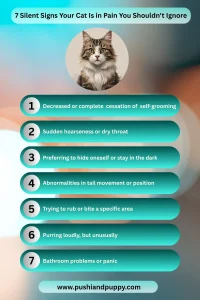
When your cat stops eating, it is not only a matter of concern, but can sometimes be a warning sign of danger. According to experts, “Pets are part of our family — even their small behaviors have a hidden message. The more aware you are, the safer your beloved companion will be.”
In this article, we will look at—
👉 What are the physical or psychological reasons why cats stop eating
👉 When should you see a doctor
👉 And how can you reduce the risk of these problems with daily care
1. Teeth, Gums, or Mouth Problems (Dental Issues)
When a cat has pain inside its mouth, it usually stops eating.
Causes may include:
• Tooth decay or cavities
• Gingivitis
• Mouth sores or infections
Symptoms:
• Reluctance to eat solid foods
• Drooling
• Plays with food, but won’t eat
Rodney’s advice:
“Get your cat’s dental checkup at least once a year. Neglecting oral care can lead to serious health problems.”
2. Sudden Diet Change
Cats are creatures of habit — they suddenly don’t like new smells, tastes, or textures.
You may wonder, “Why isn’t he eating even though I’m giving him a good brand of food?”
Causes:
• New brands or recipes
• Too much oil or flavor in the food
• Cold or stale food
Solution:
• Gradually change the food (7-day transition rule: 75% old + 25% new)
• If he doesn’t like the new food, see if the cat is interested in the taste and smell of it
• Warm the food slightly
3. Environmental Stress or Anxiety
Cats are easily stressed by new surroundings, noises, guests, changes in the house, or new pets.
Even changes in your work schedule can affect them.
Symptoms:
• Turning away from food
• Hiding or becoming lethargic
• Excessive licking or biting of the cat
Rodney Tips:
“Give the cat a safe environment where it can rest on its own. Your scented clothes or blankets can also provide emotional relief.”
4. Gastrointestinal Issues
One of the most overlooked causes is stomach upset or digestive problems.
Possible causes:
• Hairball ingestion
• Constipation
• Indigestion
Symptoms:
• Vomiting
• Frequent or no toilet visits
• Bloating
Solution:
• Feed high-fiber foods
• Ensure daily water intake
• If necessary, give a hairball tube or consult a doctor
5. Infection or Illness
Any viral, bacterial, or parasitic illness in cats can cause a loss of appetite.
Infectious diseases such as:
• Feline Panleukopenia Virus
• Feline Calicivirus
• Internal parasites (gastric worms)
Symptoms:
• Fever
• Watery eyes or nose
• Excessive sleepiness or lethargy
Rodney says:
“Give your cat every vaccine on time — it will not only save his life, but also your peace of mind.”
6. Food Bowl Problems
Unbeknownst to you, one of the reasons your cat won’t eat could be the bowl or feeding area.
The problem could be:
• Plastic bowl odor
• Dirt or bacteria
• Bowl that’s too high or low
Solutions:
• Use a stainless steel or ceramic bowl
• Wash and clean daily
• Feed in a quiet and peaceful place
7. Aging & Chronic Conditions
A cat’s metabolism and digestion slow down after age 7.
Possible chronic problems:
• Kidney disease
• Hormonal imbalance (hyperthyroidism)
• Cancer
Symptoms:
• Weight loss
• Excessive water intake
• Excessive urination
Rodney’s advice:
“As you get older, you need not only care, but also regular blood tests and diet changes. Age does not mean neglect.”
When should you visit the vet?
👉 Not eating for more than 24 hours
👉 Repeated vomiting
👉 Rapid weight loss
👉 Watery eyes or bad breath
👉 Lethargy and weakness
Remember: The sooner you understand the root cause of the problem, the easier it will be for your beloved pet to recover.
In short (Quick Table):
Problems to do
Teeth pain: Get a dental checkup
Disinterest in new foods. Gradually change
Mental stress: Provide a calm environment
Digestive problems: Provide fiber-rich food, water
Infection: Consult a doctor, and get vaccinated
Bowl problems: Ensure the right bowl and environment
Old age and chronic diseases: Blood tests, special diets, regular monitoring
If your cat doesn’t want to eat, don’t panic. Instead, be aware, look for symptoms, and contact an experienced veterinarian if necessary.
Don’t forget to tell us about your experience!
What did you do when your cat stopped eating? Comment below so other pet lovers can benefit.


